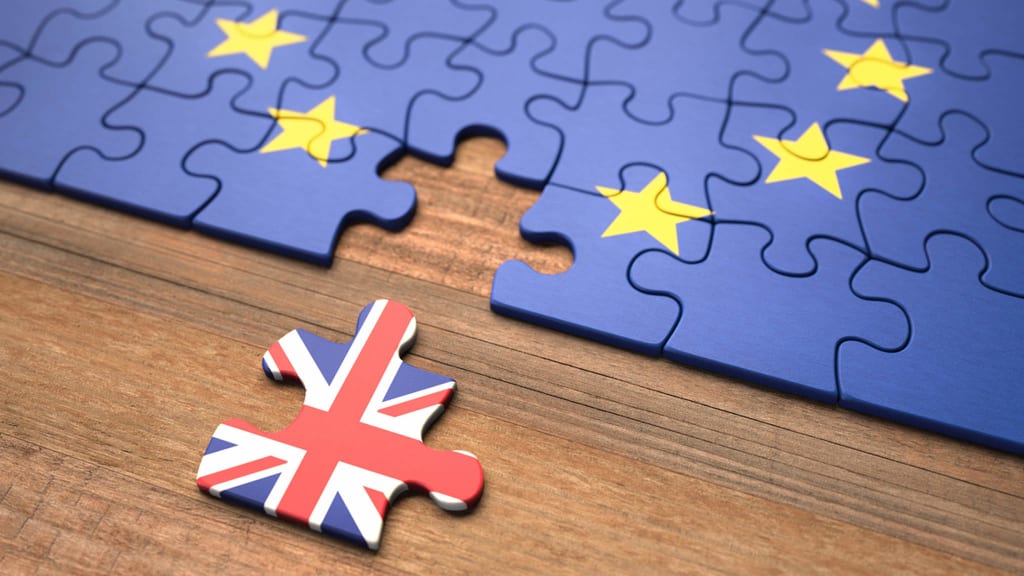Divided We Stand: The Social and Political Implications of Brexit for the UK
Exploring the Deepening Rifts and Tensions in UK Society Post-Brexit

Brexit, the UK's decision to leave the European Union (EU), has had a significant impact on the UK economy, society, and politics. The referendum in June 2016, in which 52% of British voters supported leaving the EU, sparked a complex and challenging process of disentangling from the EU.
One of the most significant economic impacts of Brexit has been on trade. Leaving the EU has meant that the UK has lost access to the EU's single market and customs union, which allowed for the free movement of goods, services, capital, and people within the EU. The UK has had to negotiate new trade agreements with the EU and other countries, which has been a complex and time-consuming process. The UK-EU Trade and Cooperation Agreement, signed on December 24, 2020, provides for tariff-free and quota-free trade in goods between the UK and the EU, but it does not cover services, which make up the majority of the UK economy.
Brexit has also had a significant impact on foreign direct investment (FDI) in the UK. Many businesses that were previously attracted to the UK because of its access to the EU market have relocated or scaled back their operations. London, the UK's financial center, has seen a significant outflow of jobs to other European cities like Frankfurt, Paris, and Dublin.
The social impact of Brexit has been profound. The referendum campaign was marked by a divisive debate that pitted different regions, generations, and social classes against each other. Many of the issues that motivated people to vote for Brexit, such as immigration, sovereignty, and national identity, continue to be contentious. Brexit has also led to a significant decline in the number of EU citizens living in the UK and UK citizens living in the EU, with both groups facing uncertainty about their future.
One of the significant consequences of Brexit has been the increase in hate crimes and racial abuse. According to the Home Office, hate crimes increased by 10% in the year following the referendum, with a significant number of incidents related to Brexit. There have been reports of EU citizens being subjected to verbal and physical abuse, and the rise of far-right and nationalist groups has fueled a sense of insecurity and intolerance. The UK government has been criticized for its response to these incidents and for failing to address the underlying issues of xenophobia and racism.
Brexit has also deepened the regional divide in the UK. The vote to leave the EU was primarily driven by voters in England and Wales, while Scotland and Northern Ireland voted to remain. The Scottish government has repeatedly called for another independence referendum, arguing that Scotland should have the right to determine its future relationship with the EU. The ongoing debate over Northern Ireland's status has also raised concerns about the potential for renewed violence and instability.
Brexit has also had a significant impact on the UK's political landscape. The Conservative Party, which campaigned for Brexit, has become more Eurosceptic, while the Labour Party has become more divided over the issue. Brexit has also led to the rise of populist and nationalist movements, such as the Brexit Party and UKIP.
Brexit has also had an impact on the UK's international standing. The UK was previously seen as one of the most influential and respected members of the EU, with a strong voice in shaping the EU's policies and direction. Leaving the EU has meant that the UK has lost this influence and has had to negotiate new relationships with the EU and other countries.
Brexit has raised questions about the future of the UK itself. The referendum revealed deep divisions within the country, with different regions and nations having different views on Brexit. The UK government has been criticized for its handling of the Brexit process, with some arguing that it has ignored the concerns of certain regions and communities. The possibility of another Scottish independence referendum and the ongoing debate over Northern Ireland's status have raised concerns about the UK's stability and future.
In conclusion, Brexit has had a profound impact on the UK, affecting its economy, society, and politics. The UK will need to navigate through these challenges and work towards a new vision for its relationship with the EU and the world. The full impact of Brexit may not be clear for some time, but it is clear that it has already had significant consequences.
About the Creator
Umer Durrani
i love reading and writing. if you enjoy reading then you are at the right place i will be posting weekly articles on number of different topics covering from life, travel to business, finance and technology.






Comments (1)
Great information